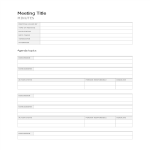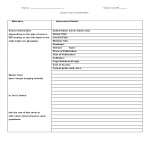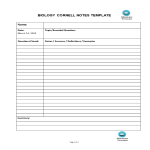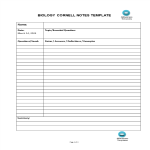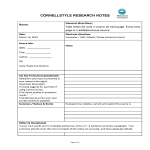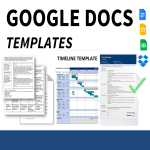Cornell Notes

- Organize your notes according to Cornell style solely on notepaper. No matter what type of note-taking tool you use, you'll need pages dedicated to note-taking. Each sheet will have a different purpose, and you will divide it into section by section.
- The bottom of your paper needs to be marked with a horizontal line. There should be a line about two inches from the bottom of the page, approximately one-fourth of the way up the page. This section will serve as a summary of your notes later on.
- Your paper should be divided into two sections by a vertical line down the left side. Line up with the left edge of the page approximately two inches from the bottom. The purpose of this section is to review your notes.
- For taking notes from the lecture or reading, leave the largest section of the page blank. There should be plenty of space for you to record important information in this section on the right.
- In case you need a shortcut, search the internet for Cornell note templates. To save time and/or take lots of notes; you can make Cornell style notes using blank templates. The same steps should be followed for printing blank sheets.
- Documentation: Separate your paper or screen into two columns: the left column is narrow, while the right column is wider. A summary should be placed at the bottom of the paper, two inches from the top. A one- or two-word title for each key concept should be placed in the left-hand column. Write notes elaborating on those concepts in the right-hand column. For easy reference, write a summary at the bottom of the lecture or event you are taking notes on.
- Streamline: Consequently, to "reduce" means to examine your notes after they have been written and clarify their meanings until you fully comprehend them. Often, it's helpful to develop questions based on your notes so that you can focus your study on specific answers. In order for your memory to retain what you need, those questions should lead you to deeper and more complex topics within the topic.
- Recital: Cover the right column once you have a good grasp of the material in your notes and try to recite the key points. The core details should be repeated periodically as needed until you are satisfied.
- Analyze: After you have mastered the basics, go over more complex questions that your notes highlight. Identify the sources of facts and principles, and seek practical applications. Taking notes at this stage will be most valuable.
- Examine: At least once a week, review your notes for 10-15 minutes after you have everything down. Maintaining sharp focus on details will help you keep them in mind at all times.
- Table can be accessed from the Insert menu by selecting Table. The Columns and Rows fields should have 2 and 34 in the Insert Table dialog.
- You can create a new document by selecting New from the File menu.
- The General Templates option should be available to you. The Task Pane may display this depending on your version of Word.
- Choose the Cornell Note template from the drop-down menu.
- Click OK.
- Open Google Docs: Go to the Google Docs website (docs.google.com) and log in to your Google account if you're not already logged in.
- Create a New Document: Click the "+ Blank" button to create a new, blank document.
- Set Up the Page Layout:
- Click on "File" in the top left corner.
- Select "Page setup."
- In the Page Setup dialog, set the page orientation to "Portrait" or "Landscape," depending on your preference.
- Adjust the page size as needed. For a traditional Cornell Note layout, you might choose "Letter" (8.5 x 11 inches).
- Set the margins. Traditional Cornell Notes often use a 1-inch left margin and a 2.5-inch right margin.
- Create the Title and Heading:
- Type the title of your notes at the top of the document. This is typically the title of the lecture, class, or topic.
- Below the title, create a two-line heading section:
- The top line is for "Notes" or "Key Points."
- The bottom line is for the date, class, or source information.
- Divide the Page into Sections:
- Use tables to divide your document into the three main sections: the note-taking section, the cue column, and the summary section.
- Click "Table" in the top menu, then choose the number of rows and columns you want for your table.
- For a standard Cornell Note layout, you would typically use a table with two columns.
- Adjust the column widths to allocate space for each section. The main note-taking section should be the widest.
- Label the Sections:
- In the top row of the table, label the left column "Notes" or "Key Points" and the right column "Cues."
- Label the bottom section as "Summary."
- Save as a Template:
- Once you have created the Cornell Note template to your satisfaction, click on "File" and select "Save as template..."
- Give your template a name, and it will be saved in your Google Docs Template gallery for future use.
Meeting Minutes template
How to set up a meeting minutes agenda? Would you like to find a template for meeting minutes that you can customize? Download this Meeting minutes template now and modify the appearance and agenda topics according to your needs!
Printable Cornell Note Taking Word
How do I get Cornell notes in Word? Are you in need of a Cornell notes template for your source card? Download our source card Cornell notes template is a great resource for organizing and taking notes from sources.
Biology Cornell Notes Word
How to create a Biology Cornell Notes in Google Docs or Word? Do you need a biology Cornell Notes Word template to keep track of your notes? Download this Biology Cornell Notes Word template now!
Blank Cornell Note Word
How to take Cornell notes in Word or Google Docs? Have you been trying to find a blank Cornell Note template in the format of MS Word? Download this blank Cornell Note Word template now and modify it according to your preferences!
Cornell Style Notes
How to create a Cornell Style Notes? Are you looking for a template for Cornell-style notes? Download this Cornell Style Notes template now and modify according to your personal style.
Post It Note
When you write on a Post-it note, what do you write? Download our template which is 100% customizable and you can print them on your own.
Printable Cornell Notes
How to take Cornell notes? Have you been looking for printable Cornell Notes? Download our Printable Cornell Note which is designed to help you take organized and detailed notes.
Cornell Notes template in Google Docs
What are the main sections of the Cornell Notes template? Are you searching for a Cornell Note template that can be used with Google Docs? Download our sample Cornell note template now and use it to keep track of important information and stay organized.
